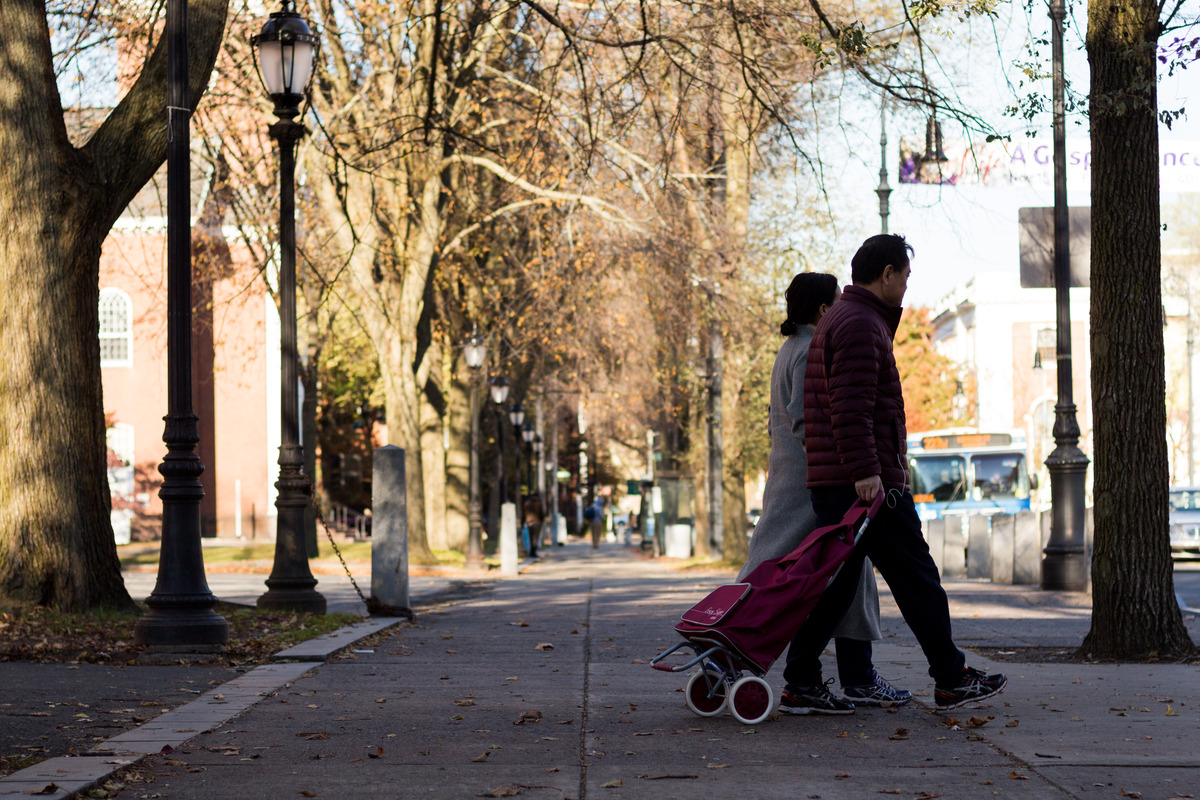New Haven plans for late summer distribution of Narcan
Following the FDA’s authorization of over-the-counter naloxone, New Haven prepares to roll out over-the-counter Narcan.

Daniel Zhao
Since the start of the year, at least 102 people in Connecticut have died from a drug overdose. That death toll tacks onto over 1400 drug-related fatalities in 2022, over 90 percent of which involved an opioid.
State harm reduction advocates and government officials hope that the United States Food & Drug Administration’s March 29 decision to authorize over-the-counter distribution of Narcan — a nasal Naloxone spray that can reverse the effects of an opioid overdose — will help save the lives of people who are overdosing.
As opioid overdoses continue to rise in New Haven, Narcan remains unavailable over-the-counter without a prescription. While naloxone is currently distributed at community-based organizations and health departments, New Haven city officials, Connecticut state legislators and harm reduction advocates believe that Narcan will reach local store shelves — on an over-the-counter basis — by the end of the summer.
“I want to emphasize that New Haven experiences some of the highest numbers of drug-related overdoses in Connecticut, which should be a prioritized concern for the Yale community,” wrote Winnie Ho, co-chair of the Yale Addiction Medicine Collaborative. “Narcan’s prescription-only nature has been a persistent barrier towards getting it out quickly and in adequate amounts, to the people who need them.”
Due to its ability to rapidly save the life of an individual who has overdosed, the FDA has approved Narcan use without a prescription — opening up avenues for Narcan to be purchased locally in grocery stores, convenience stores and other such locations.
“Naloxone saves lives,” Kathryn Hawk, an associate professor of emergency medicine and a specialist in addiction medicine, wrote to the News. “It provides an important opportunity to discuss strategies to reduce harm, including infections and overdose risk, the increasing presence of fentanyl in the street opioid and cocaine supply, and an opportunity to discuss treatment options if patients are ready.”
However, even as the official over-the-counter rollout begins, advocates have also raised ongoing questions about the pricing and availability of Narcan.
According to Hawk, it is “critically important” that over-the-counter naloxone availability does not lead to a reduction in existing channels of the medication to drug users, especially since, even with OTC status, cost and stigma continue to be ongoing barriers to naloxone access.
Frederick Altice, the director of the Yale Center for Clinical and Community Research, noted that making Narcan OTC has “potential pitfalls.”
Altice expressed concerns over the price of the OTC medication, which, without insurance, can reach $120 for two intranasal doses. High prices over the counter, Altice warned, could reduce the overall distribution and availability of Narcan.
Altice also told the News that Narcan plays a key role as a medium of drug education. Obtaining naloxone from a clinic, for instance, is often accompanied by education on recognizing an overdose and how to administer the medication.
“Naloxone works best as part of a package of overdose education and NLX distribution,” Altice wrote. “We lose the overdose education aspect.”
Ho told the News that she still remains concerned about the price point and potential logistical issues surrounding access to Narcan as it becomes more widely available.
According to Ho, the generic forms of Narcan have not yet received authorization, and there have also been reports of supply chain issues with the brand name drug.
“Some concerns that I have heard include: What’s the price of Narcan going to be, if only one formulation of naloxone, by one company, is approved for OTC, if this form of naloxone is no longer prescription-status … and what will the implementation of this new authorization look like?” Ho wrote to the News. “Will it help or hurt community distribution?”
Advocates in the city are also already reporting issues with shortages of naloxone, which has further raised concerns about the feasibility of ensuring that the over-the-counter drug continues to be easily accessible.
Julia Einhorn, the New Haven Health Department’s programs director, expects Narcan to “hit store shelves” by late summer. She noted that the delay between FDA authorization and widespread Narcan availability was due to “extra steps” that medication manufacturers need to complete before distributing Narcan to stores.
“We’re committed to expanding access to harm reduction services by connecting them to substance use treatment and other supports and services,” New Haven Mayor Justin Elicker told the News. “A critical part of that effort is providing naloxone training and free access to naloxone, which is available through both the city’s health department and our community partners — and that will continue irrespective of Narcan’s availability at pharmacies.”
Altice, however, described the delay as being driven by a shortage of availability. In his experience, there is “not enough [Narcan’] to go around.”
In the meantime, according to Einhorn, the city plans to continue distributing naloxone and providing naloxone training even once the medication becomes available over-the-counter. The city aims to use social media and partnerships with schools and community organizations, Einhorn said, to raise awareness for these initiatives.
For harm reduction advocates, however, over-the-counter authorization is just one step in the fight against overdose-related deaths.
“While over-the-counter status for Narcan is a step in the right direction towards reducing barriers to access, I personally believe that the ultimate goal is to ensure that naloxone is free and readily available for all,” Ho told the News. “We’ve lost too many people to still have this many barriers to a life-saving medication.”
The first patent for naloxone was issued in 1961.







